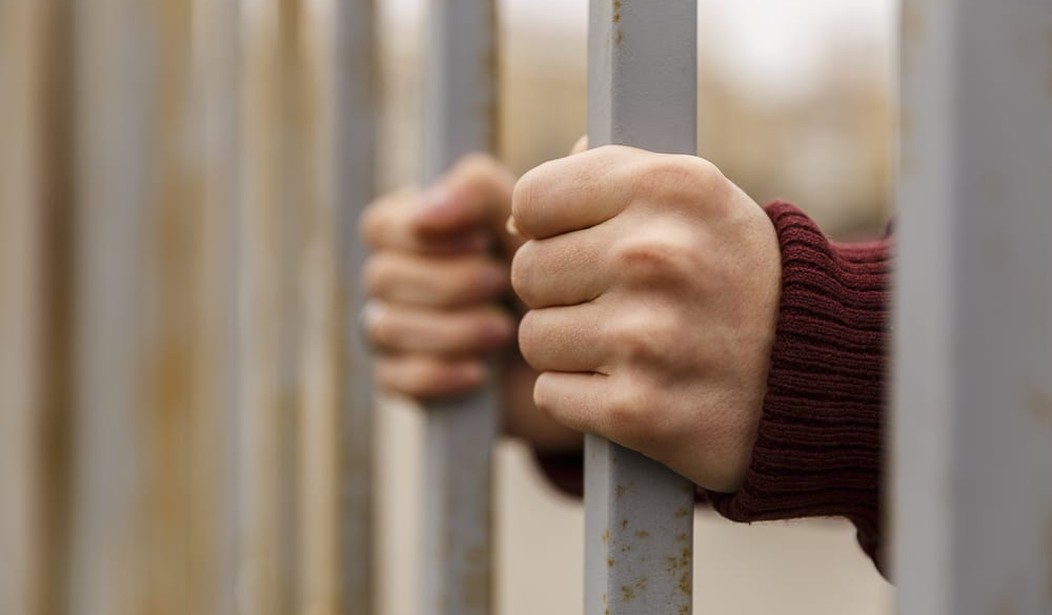WASHINGTON — A new bipartisan duo want states to rethink the system of demanding cash bail for those arrested without considering the suspects’ financial situations and risk factor, arguing that arbitrary bail amounts discriminate against minority communities and adversely affect public safety.
Sens. Rand Paul (R-Ky.) and Kamala Harris (D-Calif.) teamed up on the The Pretrial Integrity and Safety Act of 2017, which notes that taxpayers spend $38,000,000 per day to house suspects awaiting trial who couldn’t make bail — suspects who have swelled jail populations by 95 percent since 2000. The legislation provides up to $10 million in annual grants to states and Indian tribes “to reform their criminal justice system to encourage the replacement of the use of payment of secured money bail as a condition of pretrial release in criminal cases.”
States receiving grants would have to submit statistics including the demographic breakdown of defendants kept in pretrial detention. The money “shall be used for developing the long-term, sustainable capacity to perform more effective pretrial practices that include system analysis, training and technical assistance, meeting facilitation, research and performance evaluation, information technology reprogramming,” including ensuring pretrial release conditions are “based on the least restrictive conditions that a judicial officer determines would reasonably assure the appearance of the defendant and the safety of others in the community.”
“Money bail systems have resulted in disparate harms to poor people and communities of color. Studies have shown that African American and Hispanic defendants are more likely to be detained pretrial than white defendants and less likely to be able to post money bail so they can be released. Moreover, race and money bail amounts are significantly correlated. Nationally, African American men pay 35 percent higher money bail amounts than white men, and Hispanic men pay 19 percent higher money bail amounts than white men,” the bill states. “Congress should encourage the replacement of the practice of money bail systems to provide for a more equal and effective criminal justice system for the people of the United States.”
Paul said in a statement that “Americans should be able to expect fair and equal treatment under the law regardless of how much money is in their pockets or how many connections they have.”
“By giving states greater freedom to undertake reforms specific to their needs, our legislation will help strengthen protections for minority and low-income defendants, reduce waste, and move our bail system toward more effective methods, such as individualized, risk-based assessments,” he said.
Harris noted that “more than 450,000 Americans sit in jail today awaiting trial and many of them cannot afford money bail.”
“In our country, whether you stay in jail or not is wholly determined by whether you’re wealthy or not – and that’s wrong,” she added. “We must come together to reform a bail system that is discriminatory, wasteful, and fails to keep our communities safe.”
The pair penned a New York Times op-ed together highlighting the case of 16-year-old Kalief Browder, accused of stealing a backpack in 2010 and sent to Rikers for three years before the charges were dismissed; his family couldn’t afford the $3,000 bail. Browder was scarred by the experience and committed suicide in 2015.
“Bail is supposed to ensure that the accused appear at trial and don’t commit other offenses in the meantime. But research has shown that low-risk defendants who are detained more than 24 hours and then released are actually less likely to show up in court than those who are detained less than a day,” Harris and Paul wrote. “It is especially troubling that our bail system does not keep us safer. In a study of two large jurisdictions, nearly half of the defendants considered ‘high risk’ were released simply because they could afford to post bail.”
Supporters of the bill include the NAACP and ACLU.








Join the conversation as a VIP Member